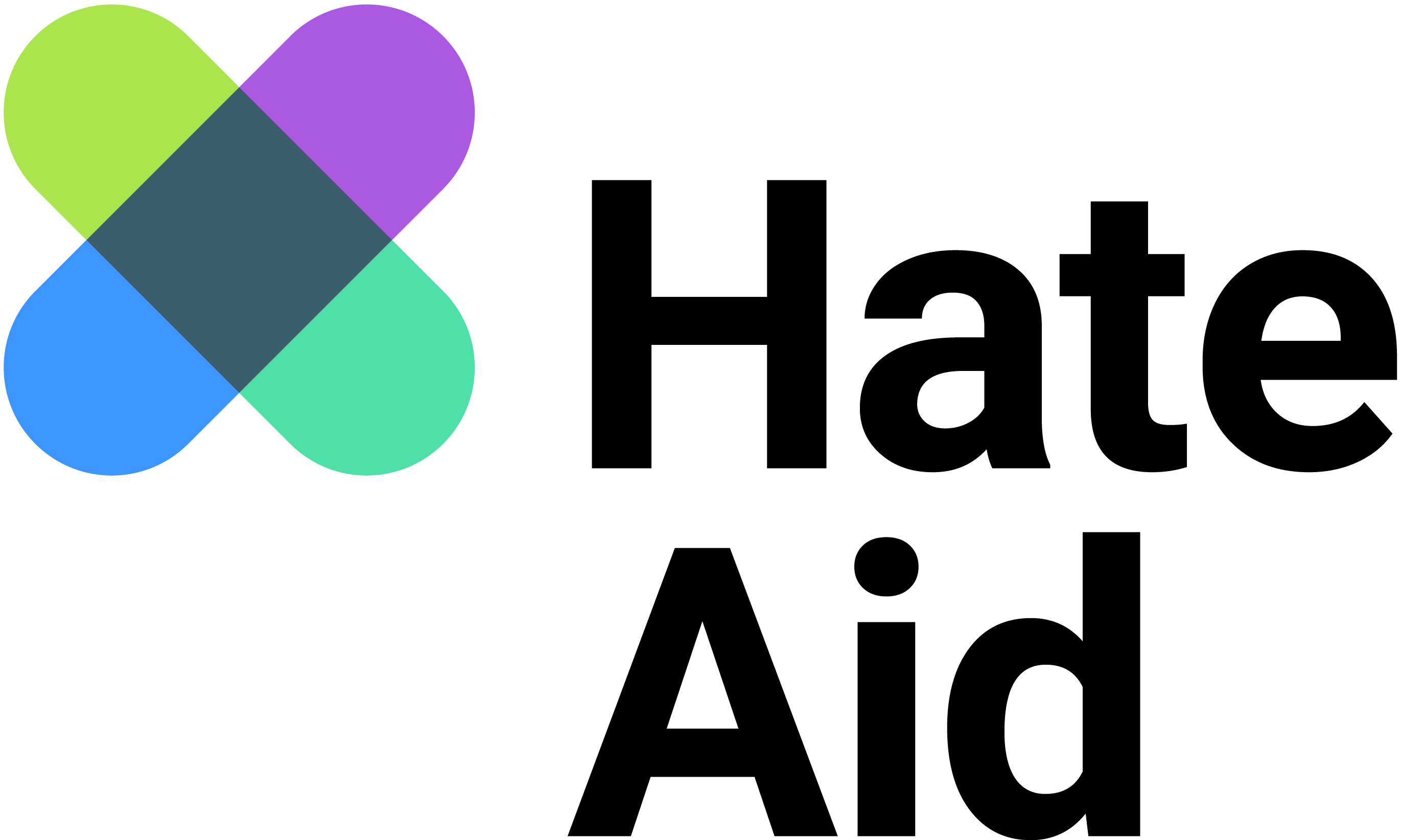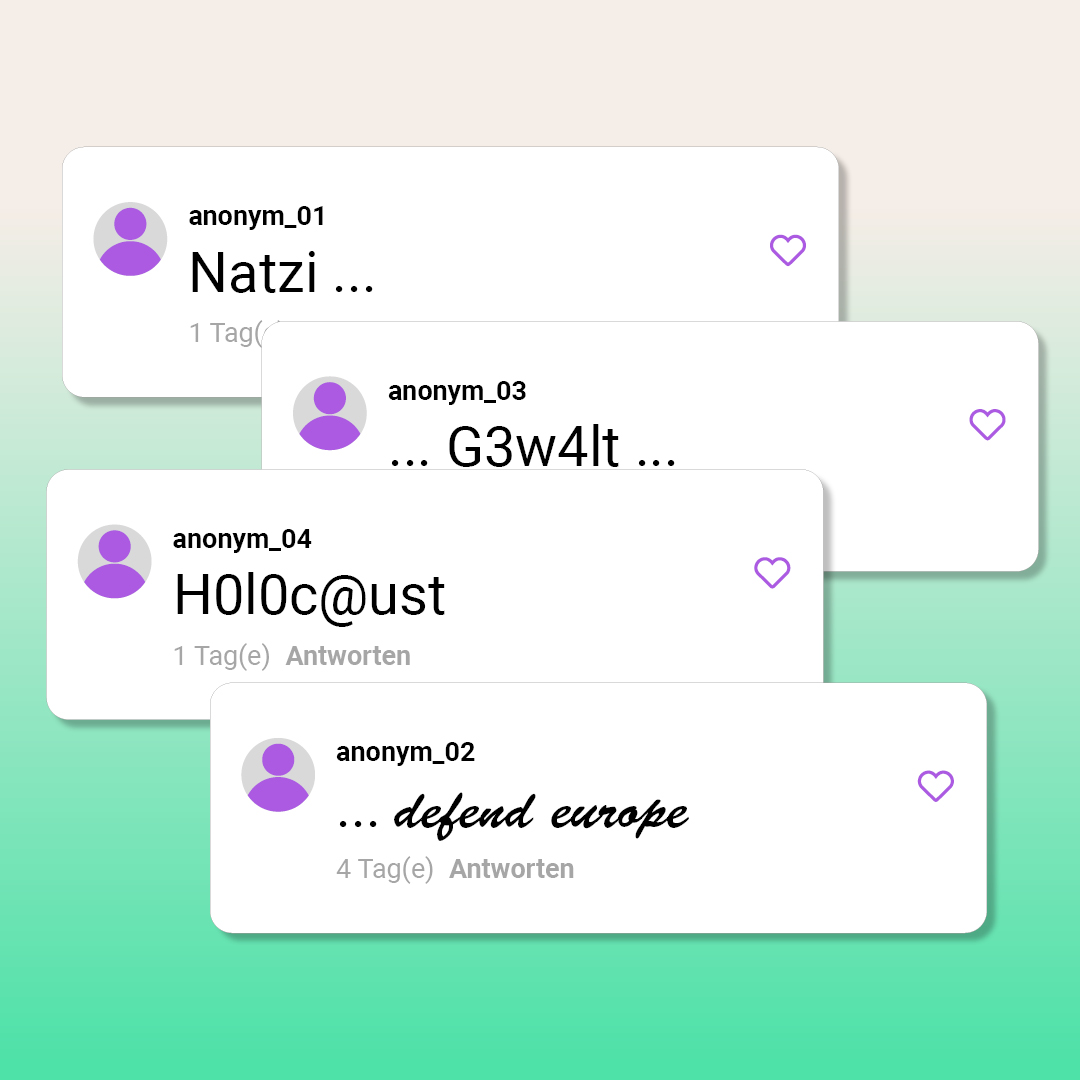Boundless hate. New Europe-wide survey on digital violence shows: Online platforms fail to protect against hate and incitement online
A new representative survey commissioned by HateAid shows: Digital violence has reached massive proportions across Europe. One in three Europeans has already been personally affected by hate on the internet – among young adults even every second person. Together with a broad civil society alliance, HateAid is now calling on the EU to intervene with the Digital Services Act (DSA).
Hate speech, dick pics and rape threats: Digital violence is now part of everyday life for internet users everywhere in the EU. This is shown by the representative European survey: Every second young adult in Europe has experienced hate and incitement online. Many feel unprotected and left alone by the platforms: 4 out of 5 Europeans denounce that Facebook, Twitter and Co. do not do enough to protect against digital violence. Together with an alliance of 17 European organizations, HateAid is therefore now calling on the EU to take immediate action to protect against digital violence with an international petition.
Alarming: Young adults particularly affected across the EU
The situation is particularly dramatic for young adults in the EU: 91 percent of young adults between 18 and 35 have already seen hate and incitement on the Internet on several occasions. Every second young adult has even been affected by digital violence themselves. Across all age groups, more than two-thirds of all respondents have experienced digital violence themselves.
Women in particular are being pushed off the internet
Digital violence can affect anyone. However, online hatred is pushing women out of social media in particular. 52 percent of the women surveyed stated that they express their opinions on the Internet less frequently for fear of hate. Among the male respondents, 35 percent said they were much more cautious and anonymous in the face of violence on the Internet.
Europeans give Facebook, Twitter and Co. a poor report card
In the survey, 85 percent of respondents express that online platforms such as Facebook, Google and Twitter are not doing enough to protect against digital violence. Over 90 percent of respondents are in favor of reported illegal content being removed more efficiently. 80 percent of respondents would like to have a say in the criteria used to display posts to them. Four out of five respondents consider the legislator to have a duty: they call for clear rules to be enshrined in law for protection against digital violence.
Inês Marinho, Founder of the Portuguese initiative Não Partilhes:
“A few years ago I joined a group of women whose nude pictures were stolen and published. There were too many of us, far too many, who had this horrible experience. That’s when I realized that something has to happen now. Our society must now take action to ensure that those affected by digital violence are supported. The responsibility for dealing with these crimes lies with all of us, not with those affected.”
Anna-Lena von Hodenberg, executive director of HateAid:
“The results show: Digital hate is not an isolated case, but the rule across Europe. At the latest since the revelations of the Facebook files, we know that the platforms are not prepared to do anything about it. Citizens all over Europe are now making clear demands on EU politicians: They must finally act and lay down clear rules for platforms and fundamental rights for users in the Digital Services Act. Only in this way can we ensure the protection of people on the Internet and create spaces in which we can move without fear of violence.”
Thousands of Europeans have already joined these demands as part of the petition of the alliance, which includes Anna Nackt, Plan International Germany, bff – Bundesverband der Frauenberatungsstellen und Frauenennotrufe, neue deutsche medienmacher*innen as well as the European organizations INACH, Não Partilhes (Portugal), digitalt ansvar (Denmark), Stop Fisha (France), PantallasAmigas (Spain), Zara (Austria), BelonGTo (Ireland).
More information:
You can find the complete survey on our website hateaid.org/eu-survey
The petition and more information about the Digital Services Act can be found at hateaid.org/petition and hateaid.org/dsa






